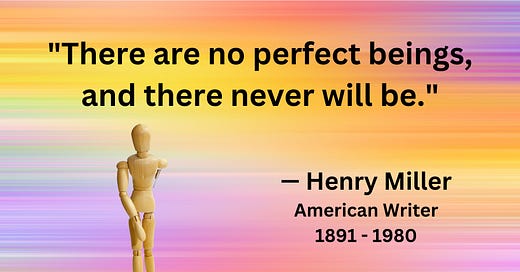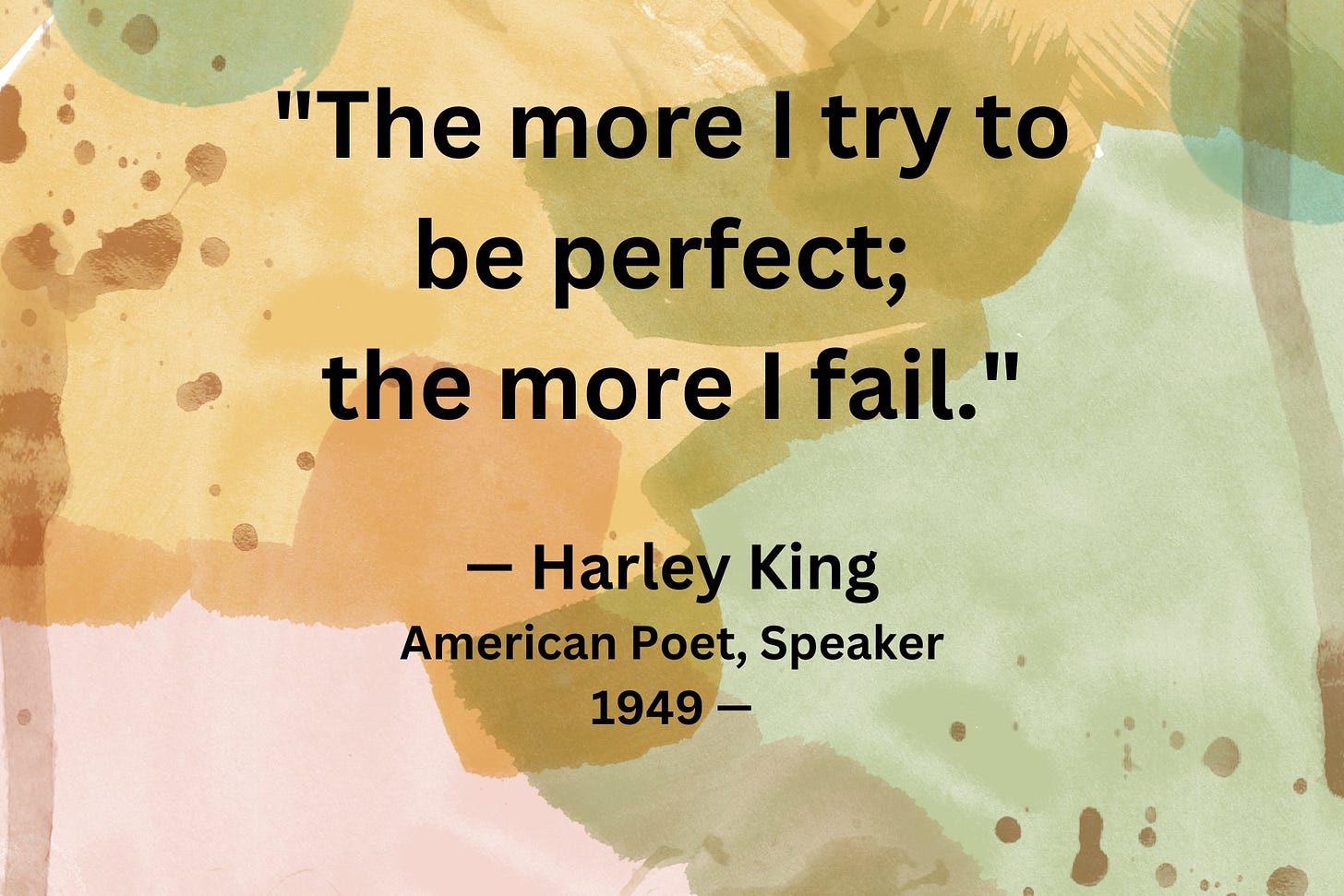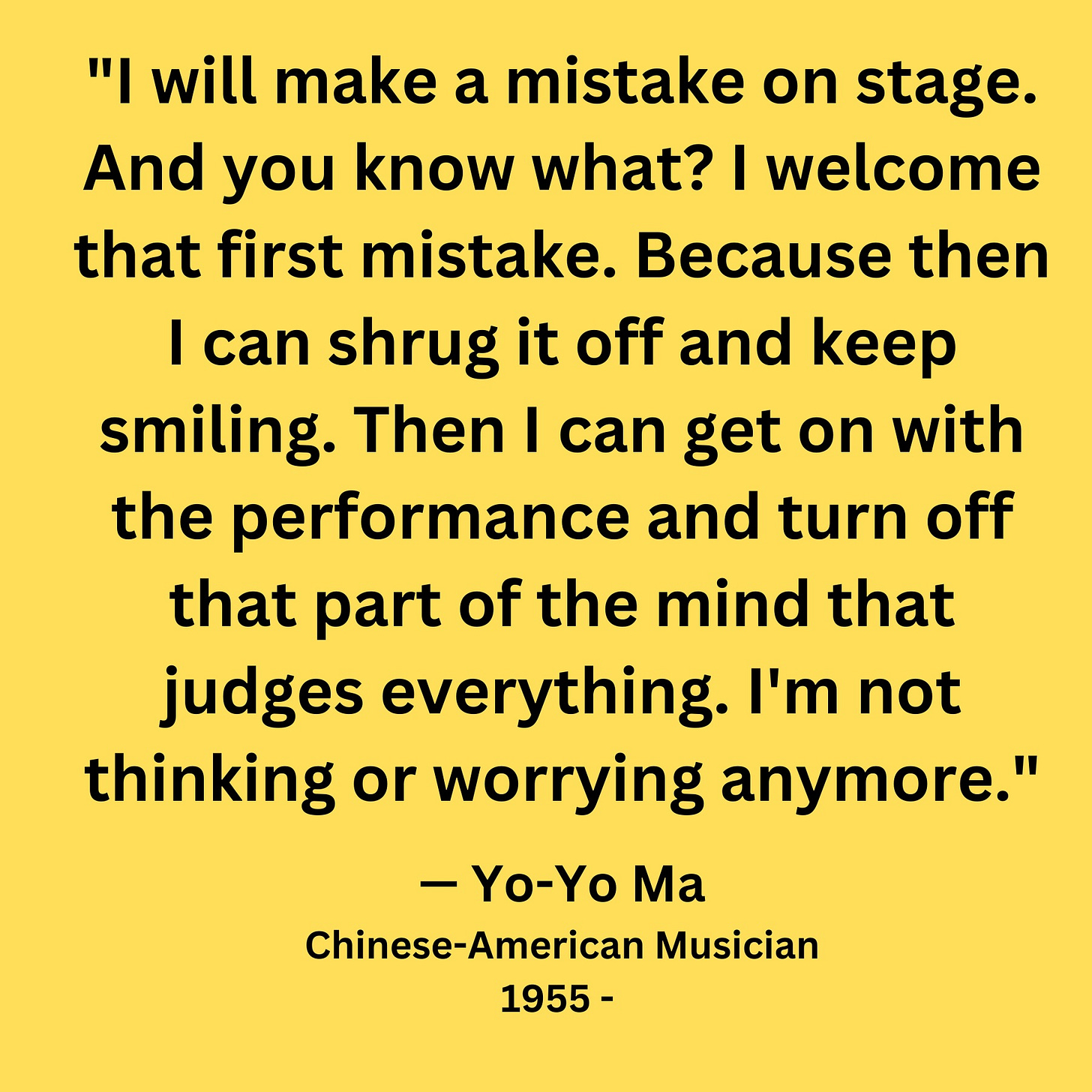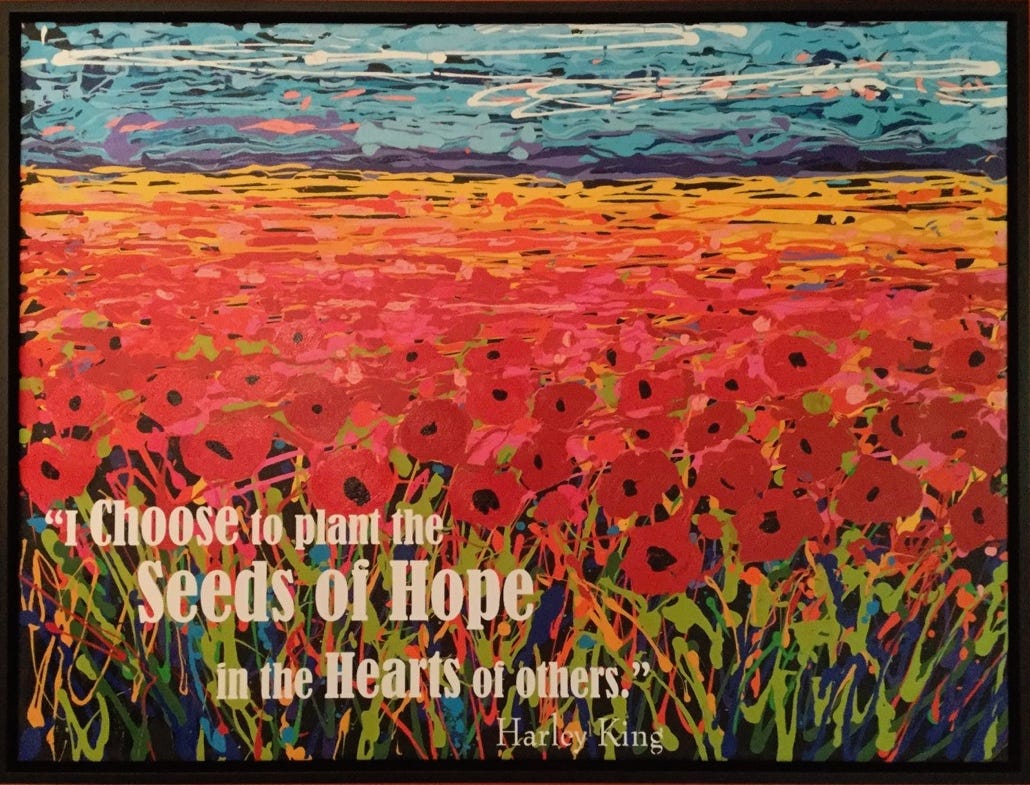Issue #64
Many people struggle with perfection. Humans have sought to return to the land of perfection since Adam and Eve were tossed out of the Garden of Eden.
How about you? Do you strive to be perfect in your creative work? Are you a perfectionist? Are you trying to live up to the image that others have of you? Do you punish yourself for your failures? Do you judge yourself too harshly?
Have you learned to forgive yourself? To accept your mistakes? To understand that it is okay to be human? To realize the Garden of Eden does not exist? Have you let go of your need to be the perfect writer? The perfect painter? The perfect singer? Do you celebrate your mistakes?
I read a story once of a Japanese haiku poet who, in his lifetime, had written thousands of haiku. When he was dying, he destroyed all but three of his haiku. He felt the others were not good enough — were not perfect.
In baseball, a batting average of .300 is considered good. Ty Cobb, the best hitter in baseball, had a career average of .366 To bat .300 means that in 1000 at-bats, the batter failed to get a hit 70% of the time. Baseball players are not perfect.
Most people can not live up to the images that other people have of them. I am sure that you have favorite writers or artists whose work you love. Yet, if you ever read a biography of the person, you realize that he was not as good in his personal life as you imagined him to be.
In the American society, we put people on pedestals and make heroes out of them. They become our idols. We worship them. When we discover that they are human, we vilify them. They have let us down. We condemn them. We do it to our sports heroes, our politicians, our artists. Nobody is perfect. Our heroes have clay feet. Our heroes will fail us.
For much of my life, I have tried to be perfect: the perfect son, the perfect student, the perfect husband, the perfect father, the perfect writer, the perfect speaker, and the perfect employee. But I failed every time. I have never been able to live up to the image I have myself or that others have of me.
As a child, I sought perfection at school, at church and in the home. I attempted to become perfect in the eyes of God.
In fourth grade, my teacher, Mrs. Windley, pulled another boy and myself aside and told us that we needed to be leaders on the playground. We needed to stop the other children who were misbehaving. I, of course, had no idea what she meant. Supposedly, because we behaved so well, she wanted us to influence the other children. I had no idea how to do that.
I have tried to write the perfect poem, the perfect short story, the perfect novel and failed miserably. Early in my career, I would spend hours and hours rewriting and revising. I usually reached a point in my revising where the words returned to what I had originally wrote. I had come full circle and I knew it was time to stop.
I have spent a lifetime struggling against the false god of perfection. I know I will never be perfect, but a part of me still seeks to reach it. The lesson I keep relearning is that it is okay to fail — to make mistakes, to be human. Failure is part of the human state.
It has taken me years, but I have made progress. I worry less today about being perfect. In fact, I have learned to celebrate my failures and to enjoy making mistakes. It is okay to be human.
Being perfect does not make us successful. Often, our mistakes make us who we become—the mistakes make us human. People usually identify with our mistakes more than our successes.
I once hired a speaker who, through her stories, appeared to live the perfect life. She turned off at least a third of the audience. Sometimes, it is better to show weakness than strength.
I have been fired six times in my career. The first time was when I was fifteen, and the last was when I was seventy-three. Those failures often led to success later on.
Forgive yourself for your mistakes. They are what make you human and will eventually make you successful. Often, new ideas, products, and opportunities come from failures. How have you benefited from your failures?







